Number 770 - Dick Dale

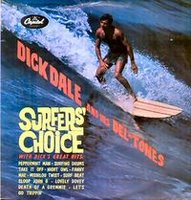
Number 770
Dick Dale
"Miserlou"
(1962)
.
.
.
Genre:Surf Rock
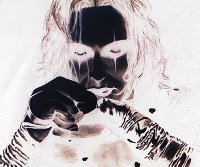 If Neil Young is the Grandfather of Grunge then Dick Dale is the Creator of Surf Rock. Before the Beach Boys sang about getting help from Rhonda, before Jan & Dean killed themselves dead on a curve and even before the creation of the surfboard (ok i'm joking about the last one) there was Dick Dale hammering out the surf tunes we all come to know and love.
If Neil Young is the Grandfather of Grunge then Dick Dale is the Creator of Surf Rock. Before the Beach Boys sang about getting help from Rhonda, before Jan & Dean killed themselves dead on a curve and even before the creation of the surfboard (ok i'm joking about the last one) there was Dick Dale hammering out the surf tunes we all come to know and love.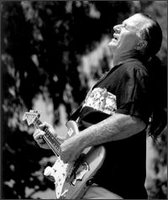 "Dick Dale wasn't nicknamed "King of the Surf Guitar" for nothing: he pretty much invented the style single-handedly, and no matter who copied or expanded upon his blueprint, he remained the fieriest, most technically gifted musician the genre ever produced. Dale's pioneering use of Middle Eastern and Eastern European melodies (learned organically through his familial heritage) was among the first in any genre of American popular music, and predated the teaching of such "exotic" scales in guitar-shredder academies by two decades. The breakneck speed of his single-note staccato picking technique was unrivalled until it entered the repertoires of metal virtuosos like Eddie Van Halen, and his wild showmanship made an enormous impression on the young Jimi Hendrix. But those aren't the only reasons Dale was once called the father of heavy metal. Working closely with the Fender company, Dale continually pushed the limits of electric amplification technology, helping to develop new equipment that was capable of producing the thick, clearly defined tones he heard in his head, at the previously undreamed-of volumes he demanded. He also pioneered the use of portable reverb effects, creating a signature sonic texture for surf instrumentals. And, if all that weren't enough, Dale managed to redefine his instrument while essentially playing it upside-down and backwards -- he switched sides in order to play left-handed, but without re-stringing it (as Hendrix later did).
"Dick Dale wasn't nicknamed "King of the Surf Guitar" for nothing: he pretty much invented the style single-handedly, and no matter who copied or expanded upon his blueprint, he remained the fieriest, most technically gifted musician the genre ever produced. Dale's pioneering use of Middle Eastern and Eastern European melodies (learned organically through his familial heritage) was among the first in any genre of American popular music, and predated the teaching of such "exotic" scales in guitar-shredder academies by two decades. The breakneck speed of his single-note staccato picking technique was unrivalled until it entered the repertoires of metal virtuosos like Eddie Van Halen, and his wild showmanship made an enormous impression on the young Jimi Hendrix. But those aren't the only reasons Dale was once called the father of heavy metal. Working closely with the Fender company, Dale continually pushed the limits of electric amplification technology, helping to develop new equipment that was capable of producing the thick, clearly defined tones he heard in his head, at the previously undreamed-of volumes he demanded. He also pioneered the use of portable reverb effects, creating a signature sonic texture for surf instrumentals. And, if all that weren't enough, Dale managed to redefine his instrument while essentially playing it upside-down and backwards -- he switched sides in order to play left-handed, but without re-stringing it (as Hendrix later did). In 1986, Dale attempted to mount a comeback. He first recorded a benefit single for the UC-Irvine Medical Center's burn unit (which had helped him recuperate from potentially serious injuries), and the following year appeared in the beach-movie sendup Back to the Beach. The soundtrack featured a duet between Dale and Stevie Ray Vaughan on the Chantays' surf staple "Pipeline," which was nominated for a Grammy for Best Rock Instrumental. In 1991, Dale did a guest spot on an album by the San Francisco-based Psychefunkapus, and a successful Bay Area gig got him signed with Hightone Records. The album Tribal Thunder was released in 1993, but Dale's comeback didn't get into full swing until, in 1994, "Miserlou" was chosen as the opening theme to Quentin Tarantino's blockbuster film Pulp Fiction. "Miserlou" became synonymous with Pulp Fiction's ultra-hip sense of style, and was soon licensed in countless commercials (as were several other Dale tracks). As a result, Tribal Thunder and its 1994 follow-up Unknown Territory attracted lots of attention, earning positive reviews and surprisingly strong sales. In 1996, he supported the Beggars Banquet album Calling Up Spirits by joining the normally punk- and ska-oriented Warped Tour. Adding his wife and young drum-playing son to his band, Dale refocused on touring over the next few years. He finally returned with a new CD in 2001, Spacial Disorientation, issued on the small Sin-Drome label. ~ Steve Huey
In 1986, Dale attempted to mount a comeback. He first recorded a benefit single for the UC-Irvine Medical Center's burn unit (which had helped him recuperate from potentially serious injuries), and the following year appeared in the beach-movie sendup Back to the Beach. The soundtrack featured a duet between Dale and Stevie Ray Vaughan on the Chantays' surf staple "Pipeline," which was nominated for a Grammy for Best Rock Instrumental. In 1991, Dale did a guest spot on an album by the San Francisco-based Psychefunkapus, and a successful Bay Area gig got him signed with Hightone Records. The album Tribal Thunder was released in 1993, but Dale's comeback didn't get into full swing until, in 1994, "Miserlou" was chosen as the opening theme to Quentin Tarantino's blockbuster film Pulp Fiction. "Miserlou" became synonymous with Pulp Fiction's ultra-hip sense of style, and was soon licensed in countless commercials (as were several other Dale tracks). As a result, Tribal Thunder and its 1994 follow-up Unknown Territory attracted lots of attention, earning positive reviews and surprisingly strong sales. In 1996, he supported the Beggars Banquet album Calling Up Spirits by joining the normally punk- and ska-oriented Warped Tour. Adding his wife and young drum-playing son to his band, Dale refocused on touring over the next few years. He finally returned with a new CD in 2001, Spacial Disorientation, issued on the small Sin-Drome label. ~ Steve Huey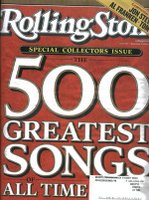 What does Rolling Stone Magazine think about the legendary Dick Dale?
What does Rolling Stone Magazine think about the legendary Dick Dale? For Neil Young see Number 938 & Number 677
For The Beach Boys see Number 714 & Number 641
For Jan & Dean see Number 847
For Eddie Van Halen see Number 822 & Number 617
For Jimi Hendrix see Number 718
For Stevie Ray Vaughan see Number 592
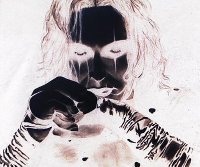 What do you know, they actually like him. Incredible, but hey... don't be surprised if RS are just jumping on the bandwagon people. Surely then he must feature on their top 500 songs aye?
What do you know, they actually like him. Incredible, but hey... don't be surprised if RS are just jumping on the bandwagon people. Surely then he must feature on their top 500 songs aye?Rolling Stone Top 500 Songs ranked this song at Number (Hey we like him.. is that not enough?) and the Album ranked at Number (Hey sue us... like we care!)
WTF! But wasn't he a pioneer in the bigger picture of rock music or what???? Just give up
WTF! But wasn't he a pioneer in the bigger picture of rock music or what???? Just give up
This song has a crowbarred rating of 65.4 out of 108
Tags:Dick Dale, 1962, Surf Rock, Neil Young, Beach Boys, Jan & Dean, Jimi Hendrix, Stevie Ray Vaughan, YouTube, Music Video, Rolling Stone Magazine, Crowbarred, New Zealand, Crowbarred Unleashed, The Definitive 1000 Songs Of All Time, Mellow Mix Volume 1
Search by Genre: ALT POP-ALT PUNK-ALT ROCK-ALTERNATIVE-BIZARRE-BLUES-BRIT POP-COMEDY-COUNTRY-CROONER-DANCE-DISCO-DO WOP-ELECTRONIA-FOLK SINGER-FOLK ROCK-FUNK-GARAGE ROCK-GLAM ROCK-GOSPEL-GRUNGE-GUITARIST-HAIR ROCK-HARD ROCK-HIP HOP-INDIE POP-INDIE ROCK-INDUSTRIAL ROCK- INSTRUMENTAL-JAZZ-LAZY SUNDAY-NEW WAVE-NU ROCK-POP-POP ROCK-PROG ROCK-PSYCHEDELIC ROCK-PUNK POP-PUNK ROCK-R&B-RAP-REGGAE-ROCK-ROCK N ROLL-SINGER SONGWRITER-SKA ROCK-SKIFFLE-SOFT ROCK-SOUL-SOUTHERN ROCK-SURF ROCK-SYNTH POP-TENOR-VOCAL
By The Year 1955 to 2005:
1955, 1956, 1957, 1958, 1959, 1960, 1961, 1962, 1963, 1964, 1965, 1966, 1967, 1968, 1969, 1970, 1971, 1972, 1973, 1974, 1975, 1976, 1977, 1978, 1979, 1980, 1981, 1982, 1983, 1984, 1985, 1986, 1987, 1988, 1989, 1990, 1991, 1992, 1993, 1994, 1995, 1996, 1997, 1998, 1999, 2000, 2001, 2002, 2003, 2004, 2005

underlay trademe
Hawera
Labels: Dick Dale












0 Comments:
Post a Comment
<< Home